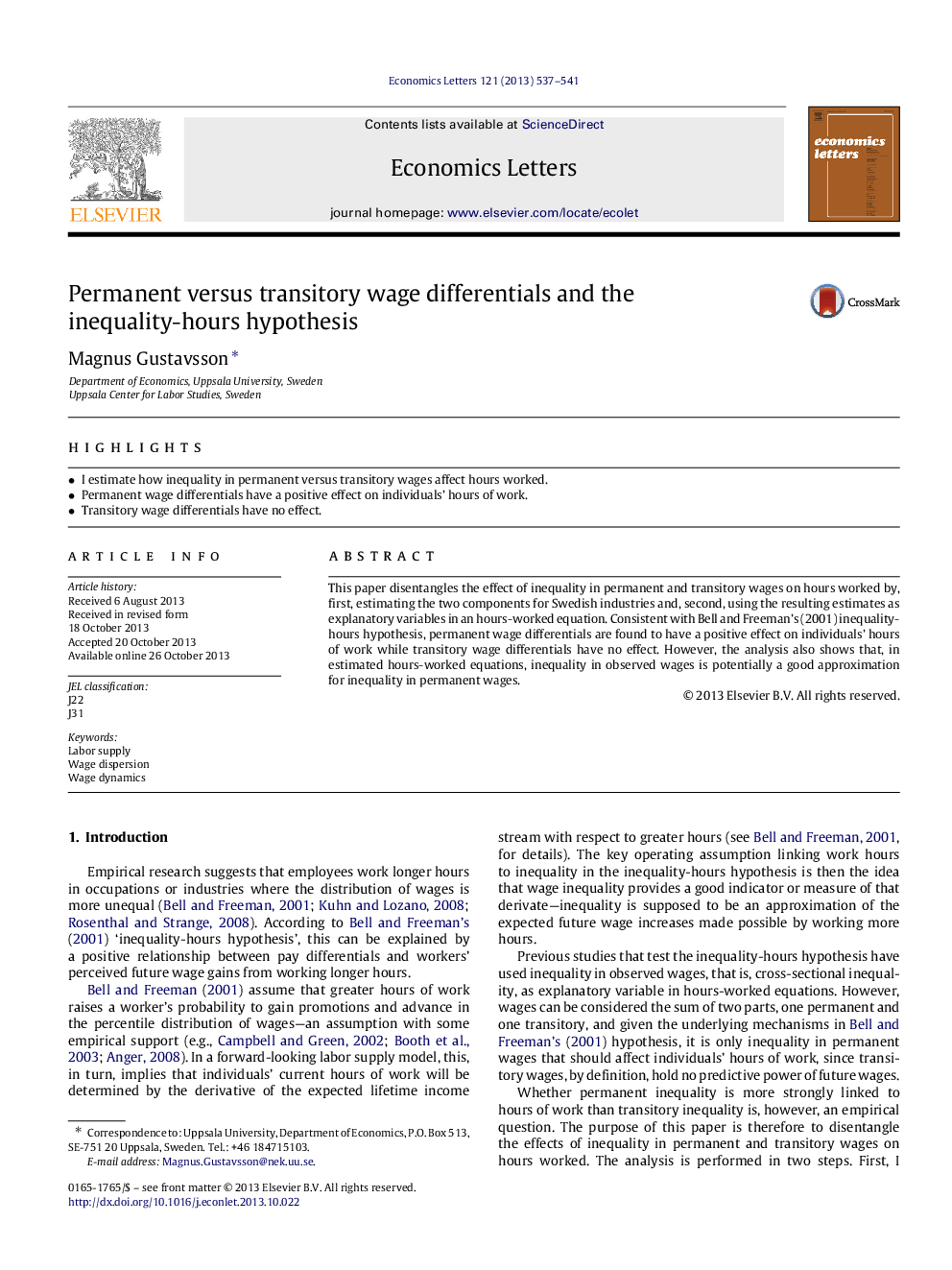| Article ID | Journal | Published Year | Pages | File Type |
|---|---|---|---|---|
| 5059572 | Economics Letters | 2013 | 5 Pages |
Abstract
This paper disentangles the effect of inequality in permanent and transitory wages on hours worked by, first, estimating the two components for Swedish industries and, second, using the resulting estimates as explanatory variables in an hours-worked equation. Consistent with Bell and Freeman's (2001) inequality-hours hypothesis, permanent wage differentials are found to have a positive effect on individuals' hours of work while transitory wage differentials have no effect. However, the analysis also shows that, in estimated hours-worked equations, inequality in observed wages is potentially a good approximation for inequality in permanent wages.
Related Topics
Social Sciences and Humanities
Economics, Econometrics and Finance
Economics and Econometrics
Authors
Magnus Gustavsson,
